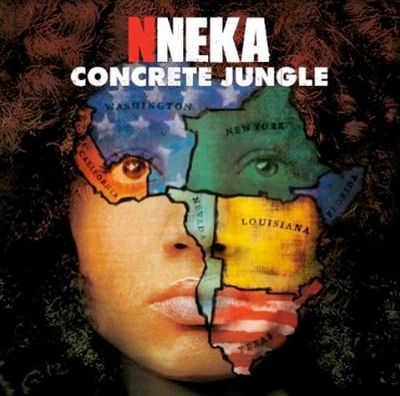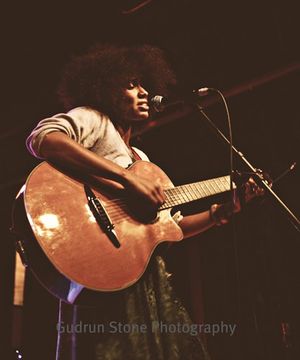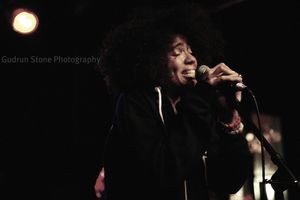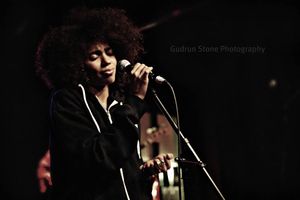I got a chance to see Nigerian-German singer Nneka (neck-a) at SOB’s earlier this month. She was cool.
That is, I like what I saw, but I wasn’t blown away. She’s good, not great. The band is competent. Since then, though, I’ve been wondering why I can’t muster more excitement about this album and this artist.
I did learn something, though. I commented to writer Siddartha Mitter, who wrote a strong profile on Nneka for The Boston Globe, that I found it surprising that a Nigerian artist would be leaning so heavily on reggae, which I associated with Jamaica.
“You know there’s a whole strain of West African reggae, right?” he responded.
No, I didn’t, but I do now. According to an article by Wayne Whitman:
Africans have been making real “roots” reggae for 20 [probably closer to 30 now] years, and it’s fantastic stuff, largely unnoticed by an international market. Reggae has always been big in Africa. But the musical genre really took off sometime after Bob Marley’s concert on Zimbabwe’s independence. Africans still talk about that 1980 concert in Harare, much like Americans talk about the 1964 Beatles’ tour of this country. Today, reggae bands play in every region, with most of the activity in South Africa, Ivory Coast or Nigeria.
Also, like that other famous Nigerian artist, Fela, she isn’t unafraid to be political. But, given the challenges that country faces (here and here), it’s hard to imagine an artist from there not using their platform to speak out. In fact, it’d be strange if she didn’t.
So, I dig songs on the album like “Africans,” in which she not only admonishes colonizers, but also Africans for the ills that plague the continent:
Why do we want to remain where we started
And how long do we want to stop ourselves from thinking
We should learn from experience that what we are here for this existence
But now we decide to use the same hatred to oppress our own brothers
It is so comfortable to say racism is the cause
but this time it is the same colour chasing and biting us
Knowledge and selfishness that they gave to us, this is what we use to abuse us
Wake up world!!
Wake up and stop sleeping
Wake up africa!!
Wake up and stop blaming
Open ur eyes!!
Stand up and rise
Road block oh life penalty
“Heartbeat” and “Suffri” are two other songs that stick in my head. She tackles subjects such as interpersonal relations, and the wealth and class disparity within Nigeria, all the while wrapping them inside radio-friendly grooves and melodies.
This is a double-edged sword. Nneka creates music that’s accessible, without her being a pop tart. She’s got some gravitas. But an issues-oriented album ultimately distances the listener, and I think that’s what I’m feeling.
Thinking back, Rage Against the Machine–along with Zach de la Rocha’s recent project One Day As A Lion–were ultimately boring because they wear their politics on their sleeves. That doesn’t make for good art. I’m not saying Nneka’s work falls in that category but it may, for me, be skirting that zone. Maybe the album has veered too much in the direction of a socio-political statement for me to really enjoy it. Maybe Concrete Jungle feels cold, despite all of its strong production, precisely because it’s not personal enough.
Again, Nneka’s good. In fact, Rolling Stone notes that in Europe and Africa, she’s quite the cult star. However, it remains to be seen whether or not she has the capacity to be great.
I’d be very much interested in hearing what you all think. Check out a few of the songs from the album in the player below.
Finally, shout out to Gudrun Stone, who’s part of the growing Boldaslove.us Atlanta extended fam, for the photos. You can check out more of her work here.
[audio:http://www.boldaslove.us/wp-content/uploads/2010/02/11-Focus-21.mp3|titles=11 Focus-2]Additional link:




